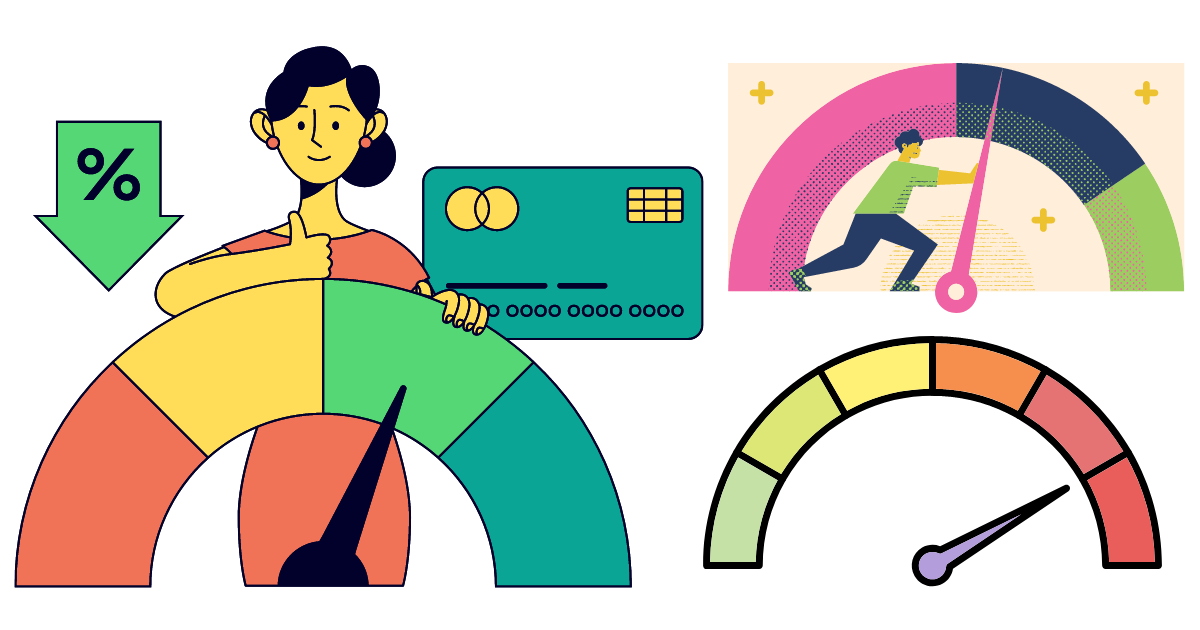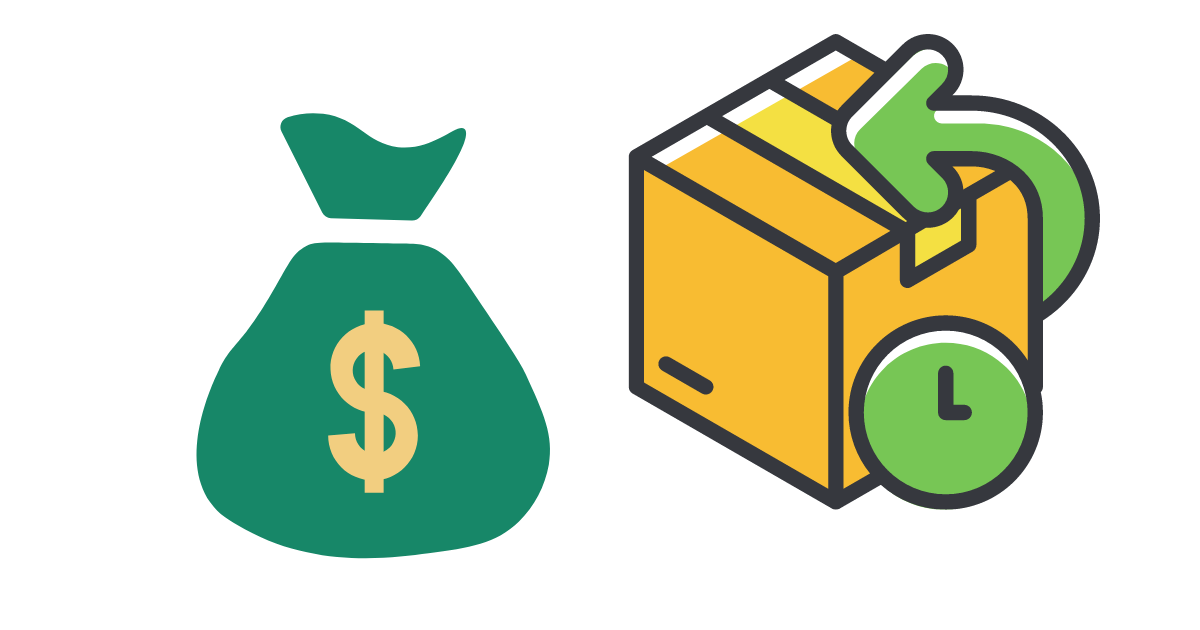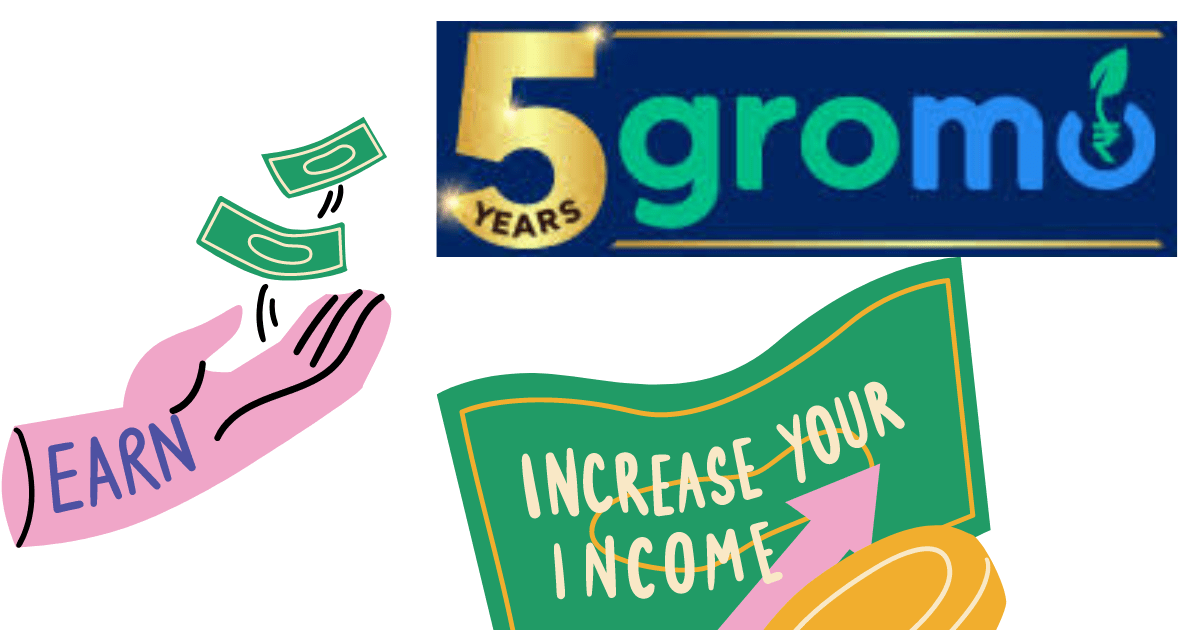Introduction
Have you ever wondered why people stress the importance of checking your credit score? It’s not just a random number; it’s a reflection of your financial health. Regularly monitoring your credit score for free can be a game-changer for your financial well-being. It helps you understand where you stand financially and what you can do to improve. So, let’s dive in and explore why keeping an eye on Check CIBIL Score for free -No impact on credit score.
Understanding Credit Scores
Understanding your credit score is like having a key that can unlock various financial opportunities for you. It is a critical component that lenders use to determine how worthy you are of receiving credit. Let’s dive into what exactly a credit score is and how it’s calculated.
What is a credit score?
A credit score is essentially a numerical representation of your creditworthiness. It reflects how likely you are to repay borrowed money based on your past credit history. Think of it as a financial report card, but instead of grades, you get a score that ranges typically between 300 and 850. The higher the score, the better your creditworthiness in the eyes of lenders.
How is a credit score calculated?
Your credit score is determined by several key factors, including your payment history, the amounts you owe, the length of your credit history, new credit accounts, and the types of credit you have used. The exact formula used to calculate your score might vary slightly among credit bureaus, but generally, payment history and amounts owed are the most significant factors. Regular, on-time payments and keeping your credit balances low relative to your credit limits can help boost your score.
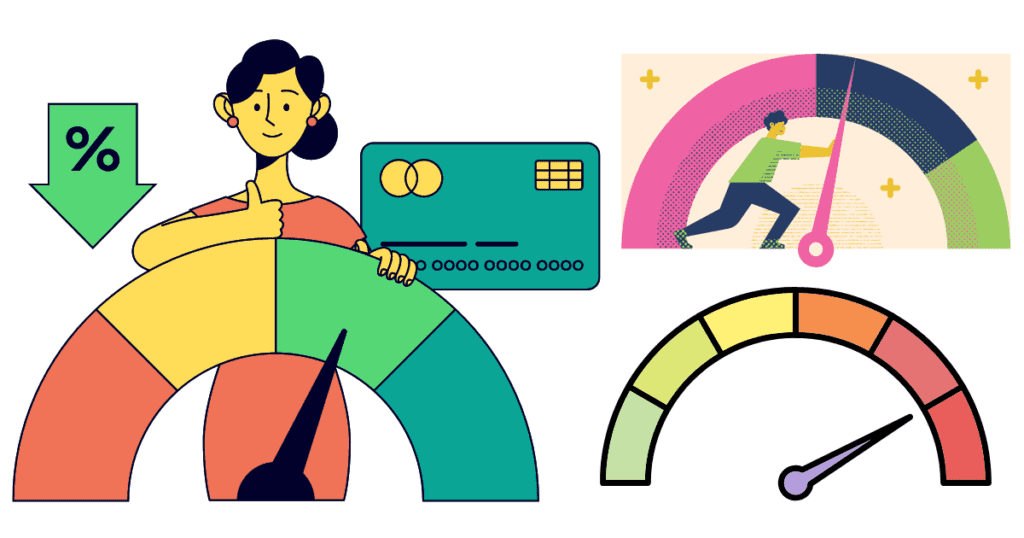
Why Checking Your Credit Score is Important
You might wonder why you need to keep an eye on your credit score. Well, regularly checking your credit score holds more benefits than you might think. It is an essential practice for managing your finances effectively and ensuring your financial goals are within reach.
Helps in monitoring your financial health
Your credit score is a good indicator of your overall financial health. By checking it regularly, you can get a sense of how well you’re managing your debt and whether you need to make adjustments to your spending or debt repayment plans. It’s like giving yourself a financial checkup to ensure everything is on track.
Enables you to detect possible errors or fraudulent activities
Errors on credit reports are more common than you might think. By checking your credit score and report, you can identify any inaccuracies, such as payments incorrectly marked as late or accounts that don’t belong to you, which could indicate identity theft. Promptly addressing these errors can help protect your credit health.
Assists in making informed financial decisions
Knowing your credit score can assist you in making informed decisions about taking on new credit. If your score is on the lower end, it might be wise to postpone applying for that new credit card or loan until you’ve had a chance to improve it. On the other hand, a high credit score could mean you’re eligible for the best interest rates and loan terms, saving you money over time.
May affect your ability to get loans or credit cards
Finally, your credit score plays a significant role in your ability to access credit. Lenders look at your score to determine whether to approve your application for loans or credit cards, and at what interest rate. A low score might mean higher interest rates or being denied credit, while a high score opens the door to more favorable loan terms and credit offers. Therefore, keeping your score in good shape is crucial for those moments when you need financial flexibility the most.
In conclusion, regularly checking your credit score for free is more than just a good habit; it’s an essential part of maintaining your financial health and ensuring you’re on track to achieve your financial goals. By understanding your credit score, how it’s calculated, and its impact on your financial opportunities, you’re better equipped to make smart financial decisions and safeguard your financial future. Remember, keeping an eye on your score can offer peace of mind and the knowledge you need to navigate the world of credit with confidence.
Check CIBIL Score for free
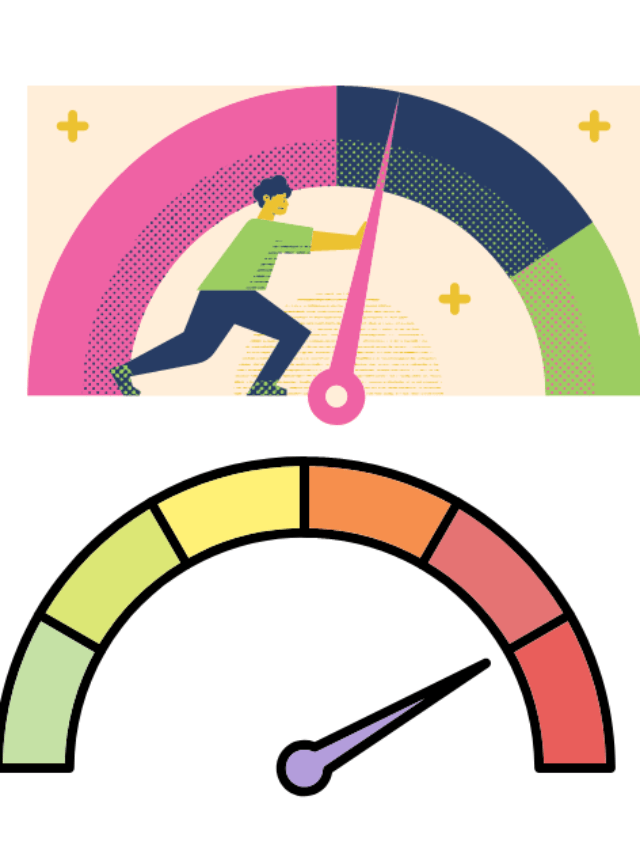
Keeping an eye on your credit score doesn’t have to dent your wallet. In fact, there are several reputable sources where you can check your credit score and get insights into your credit report at absolutely no cost. Let’s break down the primary places you can access this essential financial information.
Government-authorized websites
One of the most reliable resources for checking your credit score for free is through government-authorized websites. In the United States, the Fair Credit Reporting Act (FCRA) mandates that each of the three major credit reporting agencies provides you with a free copy of your credit report, at your request, once every 12 months. AnnualCreditReport.com is the only federally authorized website that complies with this provision. It’s a hub where you can access your reports from Experian, Equifax, and TransUnion without paying a penny.
Credit reporting agencies
Besides the annual report, some credit reporting agencies offer additional free services. Experian, Equifax, and TransUnion may provide features like credit monitoring, score updates, and alerts on changes to your credit profile all year round. These services are invaluable for keeping tabs on your credit status and for detecting potential fraud early on. It’s worth noting that while the core services are free, there might be premium options available that come with a fee.
Credit card companies
Many credit card companies now offer free credit score checks as a perk for their cardholders. This feature is not limited to only knowing your score but often includes summaries of the key factors affecting your credit and sometimes even personalized tips for improvement. Not a cardholder? Fear not, as some companies extend this offer to non-customers, aiming to draw in potential new clients. It’s a win-win situation – you get your credit score for free, and they get to introduce their services to you.
How to Check Your Credit Score for Free
Checking your credit score online is both easy and convenient. Here’s a simplified guide to help you navigate the process without stress.
Step-by-step guide on checking your credit score online
1. Choose a source: Decide whether you want to use a government-authorized website, a credit reporting agency, or your credit card company’s services.
2. Create an account: Most platforms will require you to create an account. You’ll typically need to provide some basic personal information – ensure you’re on a secure (https) site before doing so.
3. Verify your identity: You may need to answer a few security questions to confirm you are who you say you are. This step is crucial for protecting your sensitive information.
4. Access your score and report: Once verified, you can view your credit score and dive into your credit report. Some platforms may also offer tools for analyzing your credit health further.
Tips for understanding your credit report
– Look for errors: Your credit report might contain inaccuracies that can negatively impact your score. Common errors include incorrect personal information, accounts that don’t belong to you, and misreported payments. Identify and dispute any inaccuracies promptly.
– Examine the key factors: The report will highlight why your score is where it’s at. This could include your payment history, credit utilization rate, length of credit history, mix of credit, and recent inquiries. Understanding these factors can help you plan how to improve your score.
– Monitor regularly: Regular monitoring isn’t just about watching numbers fluctuate. It helps you understand how your financial decisions affect your credit health and alerts you to potential fraud.
Frequent checks on your credit score are essential for maintaining a healthy financial profile. Thanks to many free resources, doing so has never been easier. And while it might seem a bit daunting at first, especially if you’re new to credit or if you’re trying to improve your score, understanding the basics of where and how to check your score can empower you to take control of your financial health. Remember, good credit isn’t just about borrowing money; it impacts various aspects of your financial life. So, make the most of these free resources and start checking your score today!
Understanding Your Credit Report
Checking your credit score regularly is a fundamental step in managing your finances. However, understanding your credit report, which provides the detailed information behind your score, is equally important. Your credit report is like a financial report card, offering a snapshot of how well you manage your debts and financial obligations.
What information does a credit report contain?
A credit report contains several pieces of crucial information about your financial activities. Firstly, it lists your personal details like your name, address, social security number, and employment history to ensure that all financial data accurately reflects your transactions. Secondly, it details your credit accounts, including mortgages, credit cards, loans, and other lines of credit, showing how much you owe and your payment history on those accounts. Additionally, it records public records such as bankruptcies, foreclosures, or tax liens. Importantly, it also includes inquiries made into your credit report, indicating when someone, like a lender or landlord, checks your credit as part of their decision-making process.
How to interpret the different sections of your credit report
Understanding your credit report begins with knowing how to interpret the different sections. The personal information section verifies your identity. The accounts sections are of particular interest, as they detail your borrowing history, showing the types of credit you’ve used, the dates those accounts were opened, your credit limits or loan amounts, your account balances, and your payment histories. The public record section should be clear; otherwise, it could indicate serious financial distress. Lastly, the inquiries section shows who has requested to see your credit report, with fewer inquiries generally being better for your credit score.
Factors Affecting Your Credit Score
Your credit score is a number that lenders use to determine how risky it is to lend you money. It is influenced by several factors listed in your credit report. Understanding these factors can help you take steps to build or maintain a good credit score.
Payment history
Payment history is the most critical factor affecting your credit score. It indicates to lenders how reliably you pay your bills, with on-time payments positively impacting your score. Late payments, bankruptcies, and other negative markers can seriously harm your credit score. Therefore, maintaining a record of timely payments is essential for good credit health.
Credit utilization
Credit utilization refers to how much of your available credit you’re using. It’s calculated by dividing your total credit card balances by your total credit card limits. Keeping your utilization below 30% is advisable, as high utilization can indicate that you’re over-reliant on credit, which can negatively impact your score.
Length of credit history
The length of your credit history also impacts your credit score. Lenders like to see a long history of responsible credit use. This is calculated by averaging the age of all your accounts. The longer your history of good credit practices, the better your credit score will be.
Types of credit used
Having a mix of credit types can positively affect your credit score. This means having a combination of revolving credit, like credit cards, and installment loans, like auto loans or mortgages. This diversity shows lenders that you can manage multiple types of credit well.
New credit inquiries
Every time you apply for new credit, a lender makes a hard inquiry into your credit report, which can slightly lower your credit score. While one or two inquiries aren’t typically cause for concern, several inquiries in a short period can signal to lenders that you may be taking on too much debt, which can negatively impact your score.
Understanding the nuances of your credit report and the factors affecting your credit score can empower you to make informed financial decisions. Regularly checking your credit score for free and analyzing your credit report’s details can help you maintain or improve your financial health, ensuring you’re always in the best position to secure favorable credit terms when you need them.
How to Improve Your Credit Score
Improving your credit score may seem like an intimidating task, but it’s actually filled with small, manageable steps that can lead to big gains over time. Let’s break down some key strategies.
Paying bills on time
One of the simplest yet most effective ways to positively impact your credit score is to ensure you pay all your bills on time. Late payments can significantly hurt your credit score. Setting up automatic payments or reminders can be a handy tool to avoid missing due dates.
Reducing debt
High levels of debt can also drag down your credit score. Work on paying down outstanding balances, especially on high-interest credit cards. It can be beneficial to prioritize debts with the highest interest rates first, a strategy known as the avalanche method.
Keeping credit utilization low
Credit utilization – or the percentage of your available credit that you’re using – plays a big role in your credit score. Try to keep your utilization under 30%. For example, if you have a credit card limit of $10,000, aim to keep your balance below $3,000.
Avoiding unnecessary credit inquiries
Each time you apply for credit, a hard inquiry is made on your credit report, which can slightly lower your score. So, think twice before applying for new credit cards or loans unless absolutely necessary. Instead, look for ways to make the most of the credit you already have.
Building a positive credit history
The length of your credit history can affect your score, with longer credit histories typically viewed more favorably. Keep your oldest accounts open to extend your credit history length. This means even if you are not using an old credit card frequently, it might be beneficial to keep it open and use it sparingly.
Common Misconceptions about Checking Credit Scores
There are plenty of myths surrounding credit scores and how they’re affected by various actions. Let’s debunk some common misconceptions.
Will checking my credit score lower it?
One of the most persistent myths is that checking your own credit score can lower it. This is not true. Checking your own credit score or obtaining a free credit report is considered a “soft inquiry” and does not affect your score. It’s a good practice to regularly check your score to be aware of where you stand.
Is using a free credit score service safe?
Many people worry about the safety of using free services to check their credit scores. While it’s important to be cautious and select reputable services, many free credit score providers offer a reliable and secure way to check your score. Always look for services that use secure, encrypted connections and do not ask for unnecessary personal information.
Can checking my credit score often harm my credit?
Another common question is whether frequently checking your credit score can negatively impact it. The answer is no. As mentioned, self-checks are soft inquiries and do not affect your score. In fact, monitoring your credit regularly is a smart financial habit. It can help you catch errors or fraudulent activity early on, allowing you to address these issues before they can do serious harm to your credit standing.
In conclusion, understanding how to improve your credit score and dispelling myths about checking it are crucial steps on the path to financial health. By paying bills on time, reducing debt, keeping credit utilization low, avoiding unnecessary inquiries, and building a positive credit history, you can gradually improve your score. Additionally, don’t let misconceptions deter you from regularly checking your credit score. Remember, staying informed and proactive are key elements in maintaining and improving your credit health.
Conclusion
Checking your credit score regularly for free isn’t just a proactive financial step – it’s a necessity in today’s world. By staying informed, you can safeguard your financial health, plan for the future with more certainty, and even spot potential errors or fraudulent activities early. Remember, understanding your credit score is the first step towards making informed decisions that can lead to a healthier financial life. So why wait? Start checking your credit score for free today!

